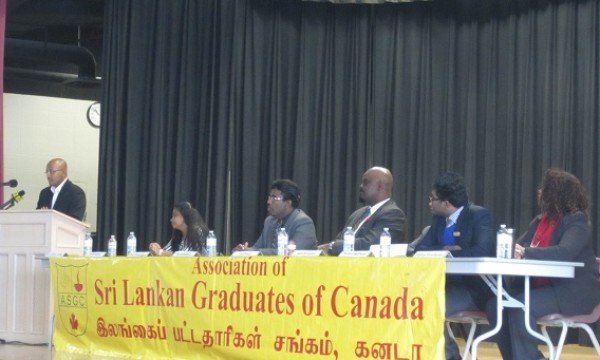TamilChangemakers
 Amarnath's Profile
Amarnath's Profile
 Amarnath's Profile
Amarnath's Profile
About me
Amarnath Amarasingam is an Assistant Professor in the School of Religion, and is cross-appointed to the Department of Political Studies, at Queen’s University in Ontario, Canada. His research interests are in terrorism, radicalization and extremism, conspiracy theories, online communities, diaspora politics, post-war reconstruction, and the sociology of religion. He is the author of Pain, Pride, and Politics: Sri Lankan Tamil Activism in Canada (2015), and the co-editor of Stress Tested: The COVID-19 Pandemic and Canadian National Security (2021) and Sri Lanka: The Struggle for Peace in the Aftermath of War (2016). He has also published around 50 peer-reviewed articles and book chapters, has presented papers at over 100 national and international conferences, and has written for The New York Times, The Monkey Case, The Washington Post, CNN, Politico, The Atlantic, and Foreign Affairs. He has been interviewed on CNN, PBS Newshour, CBC, BBC, and a variety of other media outlets. He tweets at @AmarAmarasingamInterests
srilanka
diaspora
tamil
canada
sociology
ethnicity
religion
youth
identity
modernity
Amarnath's
Posts
The Tamil Community in Canada: A Brief Overview
Even as the majority of Tamils from Sri Lanka arrived in Canada after Black July 1983, there is evidence of migration as early as 1948. In the Canadian Census data over the last several decades, people of Sri Lankan background are divided into three categories of ethnic origin: Sinhalese, Tamils, or Sri Lankans.
What High School Students and Parents Should Know about University
When I was first asked to deliver this keynote address, I wanted to say no. I haven't been a teenager for over 10 years. I’m going bald and blind, I hate going to the mall, and I don’t go to tuition classes on the weekends. What do I know about the challenges of high school today?

Abi & John
met on myTamilDate
Join for Free Today
met on myTamilDate
Similar Profiles
Meera Kumar
 United Kingdom
United Kingdom
 United Kingdom
United Kingdom
Founder of MK...
Meera Raveendran
 Canada
Canada
 Canada
Canada
QA Analyst
Shanelle Kandiah
 Toronto,
Canada
Toronto,
Canada
 Toronto,
Canada
Toronto,
Canada
Writer
at
Public...

 Website
Website
 Twitter
Twitter
 Instagram
Instagram















